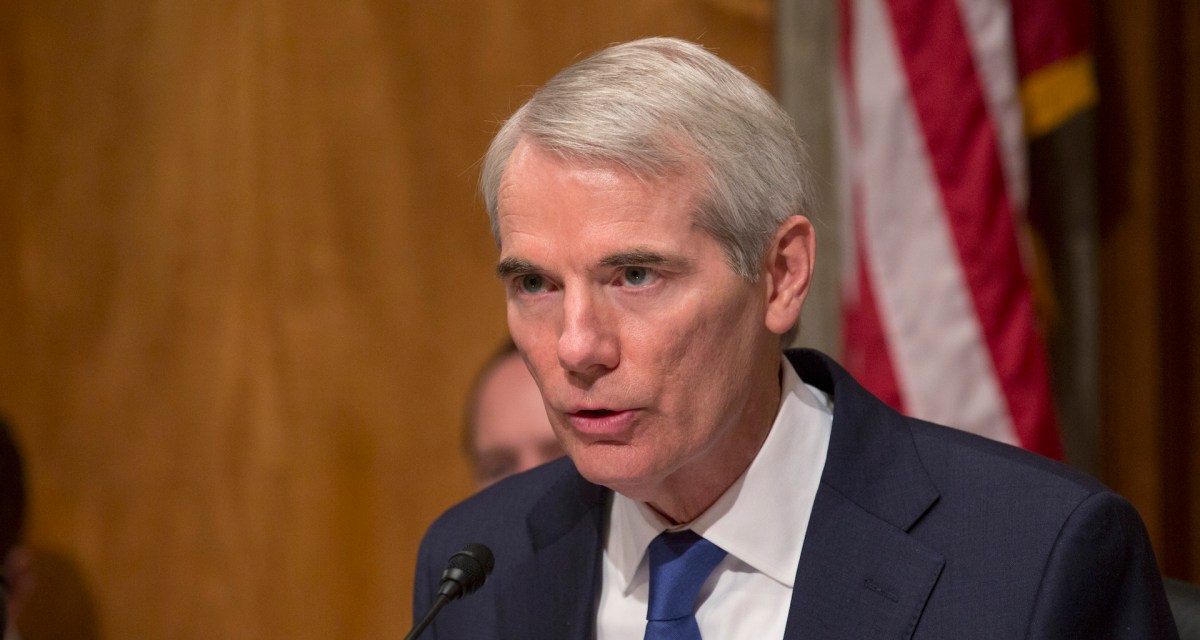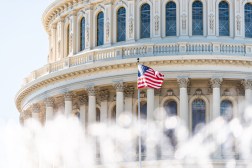The case for remote voting by Congress strengthens as more lawmakers quarantine

Resolutions circulating in the House and Senate call for temporarily changing each chamber’s rules to permit remote voting, as lawmakers look to follow advice on social distancing during the coronavirus pandemic.
Reps. Eric Swalwell, D-Calif., Katie Porter, D-Calif., and 65 other signatories sent a letter to the House Rules Committee on Monday requesting the change during national emergencies.
While the letter doesn’t suggest any particular remote-voting technology, it does argue the move would be “consistent” with what local governments, industry, academia and nonprofits are doing to limit the spread of COVID-19. Swalwell has long been a sponsor of legislation to allow House members to vote remotely on some legislation.
“Unfortunately, during such circumstances, requiring members to vote in person may pose public health risks or even be physically impossible for persons under quarantine,” reads the letter. “We need to provide a mechanism through which Congress can act during times of crisis without having to assemble in one place.”
Last Thursday, Sens. Rob Portman, R-Ohio, and Dick Durbin, D-Ill., introduced a resolution to similarly amend Senate rules to allow remote voting during a national crisis. A three-fifths majority would need to renew remote voting every 30 days.
The chosen remote-voting technology would also need to be approved by the secretary of the Senate and the chamber’s security official.
Remote voting would greatly reduce not only the number of lawmakers walking the halls of Congress, but also the attendant staff members and Capitol Building workers. The House and Senate measures would apply individually to each chamber and would not need to be signed by President Donald Trump.
Sen. Rand Paul, R-Ky., became the first senator to test positive for the coronavirus Monday, with five Republican senators total now quarantining. Some chose to quarantine after coming into contact with Paul, who refused to do it himself while awaiting his test results.
That narrows Republicans’ majority as they prepare to vote on a $1.8 trillion coronavirus stimulus package and strengthens the case for remote voting.
“[M]y hope is that we can have this as a possibility should we not be able to gather,” Portman said on the Senate floor Monday. “I think what’s happened in the last several hours as we’ve learned about our colleagues who are self-quarantining, one who tested positive, as I understand it, it’s very important that we have that ability.”
At least 31 members of Congress are now isolating themselves as a precaution, according to Swalwell’s office. The representative reintroduced his Members Operating to Be Innovative and Link Everyone (MOBILE) resolution, which he’s introduced every Congress since 2013, on March 9.
Swalwell’s resolution would require the development of a secure remote-voting system but only for use in votes on suspension bills — generally noncontroversial legislation that requires a two-thirds majority to pass. The resolution would also allow House members and witnesses to participate in committee hearings remotely.
“The science is clear: there are major risks associated with members trekking from every corner of this country to meet together in defiance of [Centers for Disease Control] guidance and state orders to shelter in place,” Porter said in a statement. “We’re asking businesses, schools, and local governments to practice social distancing to keep Americans safe; Congress should be no different.”



